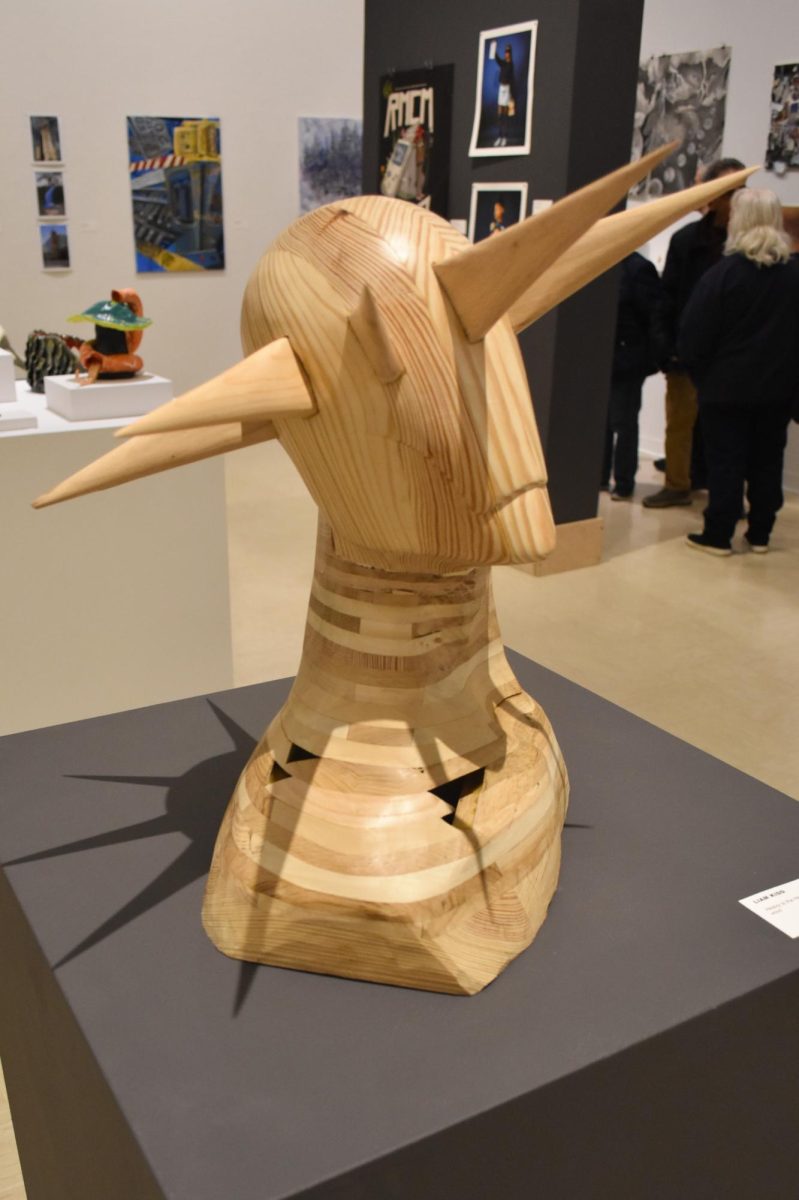” The University of Akron’s School of Communication had the privilege of hosting Chinese professor MingZe Cai to give a lecture on journalism reform in the formerly Communist republic Wednesday afternoon. Cai (pronounced SIGH), served as the Dean of the College of Journalism and Communication at Jinan University in Guangzhou, China from 2000 to 2006.”
“
The University of Akron’s School of Communication had the privilege of hosting Chinese professor MingZe Cai to give a lecture on journalism reform in the formerly Communist republic Wednesday afternoon.
Cai (pronounced SIGH), served as the Dean of the College of Journalism and Communication at Jinan University in Guangzhou, China from 2000 to 2006. Jinan is one of the oldest universities in mainland China, and many regard it as the premier school of journalism in South China.
Professor Cai, who spoke through a translator, opened by saying that the past 30 years had opened a new chapter in [Chinese] society.
Before that time, true journalism barely existed in China.
During the strictly socialist reign of Mao Zedong, only four journalism schools existed, and virtually all graduates ended up working for the government.
The death of Mao Zedong in September 1976 brought forth a new and unprecedented era of modernization in China. The following reform and opening-up included the formation of a market economy that has transformed the ancient nation into an economic powerhouse in the 21st century.
Also, the reform ushered in new ideas of social liberty, if only in baby steps. Chinese citizens could enterprise their own businesses and were very hopeful about their future, according to Cai.
As China’s economy and society gradually changed, so did its journalism.
Before Mao’s death, China’s media acted as a de facto megaphone for the Communist regime. After 1976, the Chinese press used its newfound quasi-independence to focus on truth in reporting and begin covering the plights of its orphaned society.
During this period, the Chinese press borrowed much of its style from the U.S.S.R., which for many years had been the basic blueprint upon which Communist China was built.
Throughout the 1980s and ’90s, though, Chinese journalism grew more and more similar to the Western world’s press corps because of its newfound goal: making a profit.
They had to find their own money in order to survive, explained Cai.
The newly capitalistic Chinese media began seeking a larger profit by covering a broader array of topics and utilizing a more interesting and entertaining style of writing and broadcasting.
Recently, the People’s Republic of China has responded to international cries for change by taking steps towards actively protecting free speech.
For instance, the Chinese government passed two very important media laws in March of 2008. The first limited the government’s control of the media, giving radio and television stations as well as print media unprecedented freedom.
The other law is similar to the United States’ Freedom of Information Act. Under this legislation, any government official, from low-level municipal bureaucrats to national-level executives, would be required to relinquish certain information when requested from the press.
The stark contrast of the Chinese press before and after these laws was evident in early 2008.
Though the National People’s Congress passed both laws in March, neither piece of legislation would go into effect until May 1, 2008.
The recent riots in Tibet, sparked on March 14, 2008, were hardly covered in mainland China, though international media outlets consumed the story.
On May 12, 2008, however, when the Great Sichuan Earthquake (the 19th deadliest quake in history that killed over 69,000 Chinese) struck the heart of China, the local media used its newly enacted rights to cover the disaster from many different angles.
From the 1980s until now, the number of journalism schools in the People’s Republic has grown from 17 to 670. Currently, the country boasts between 170,000 and 200,000 journalism majors. Over 2,200 newspapers and 36 radio and television stations have sprung up recently in the nation of over 1.3 billion people.
There’s still a long way to go, admits Cai. Complete freedom of the press remains a dream for many Chinese journalists.
Chinese Web sites cannot yet publish original news stories. Popular Chinese news sites such as www.SINA.com can repost material from different newspapers, but the government keeps a wary eye on original online content.
Somewhat surprisingly, many Chinese appear content with their newfound change, for now, at least. In fact, Professor Cai seemed wary of an unrestricted Internet.
No one knows what the world will be like with complete freedom of press, he said. He believes that, at this time, riots and anarchy could spring from widespread American-style condemnation of their government.
Cai, who was on his first visit to the United States, said that he will take many ideas and lessons from Akron back to his homeland.
After his tour of UA’s campus, he decided to take some ideas home to Jinan University and other schools of higher education, including a recreation and wellness center and a student-run newspaper modeled from the Buchtelite.
But his favorite part of the visit, he said, was the warmth and acceptance of UA’s students and faculty, which reminded him of home.
“











